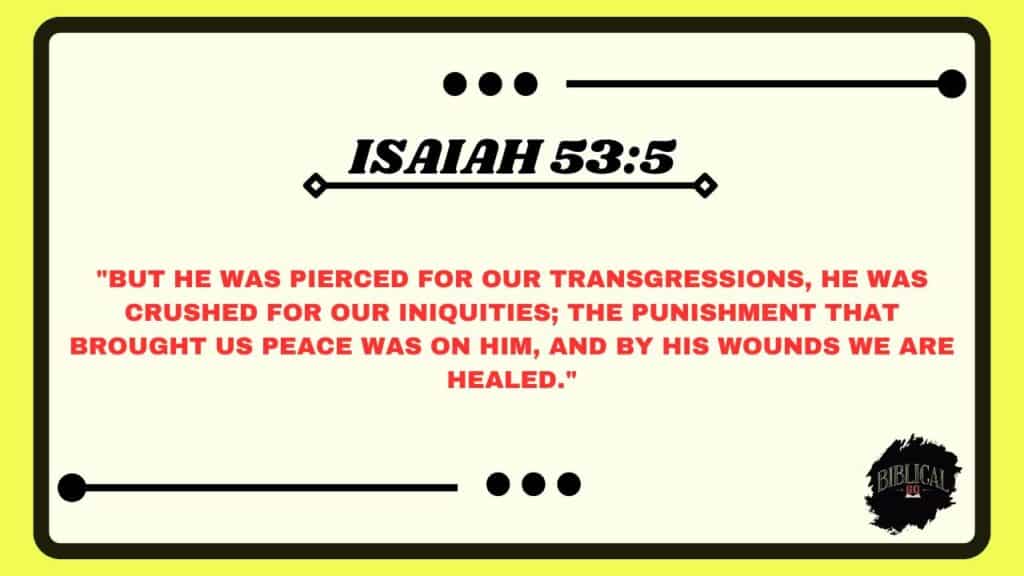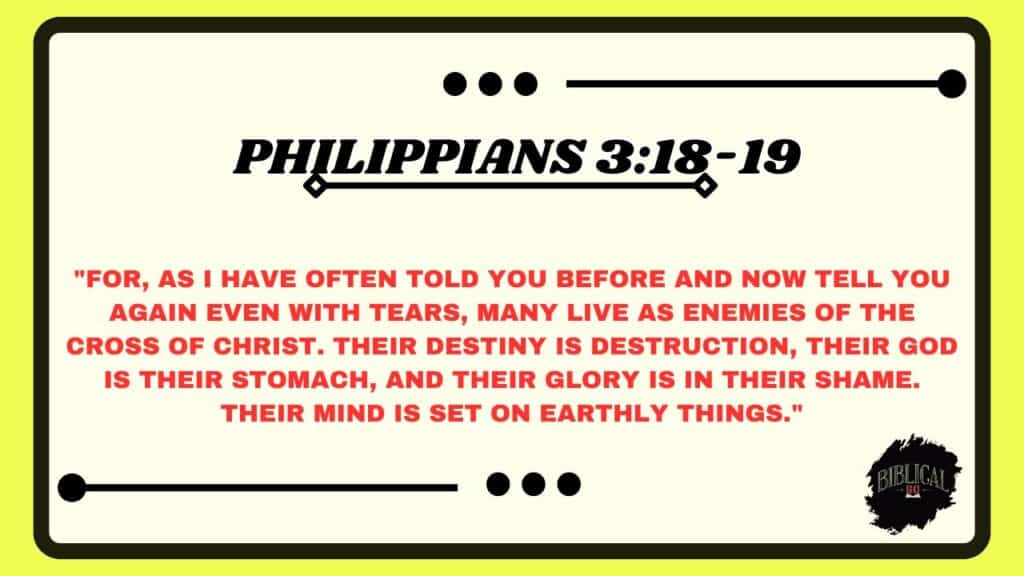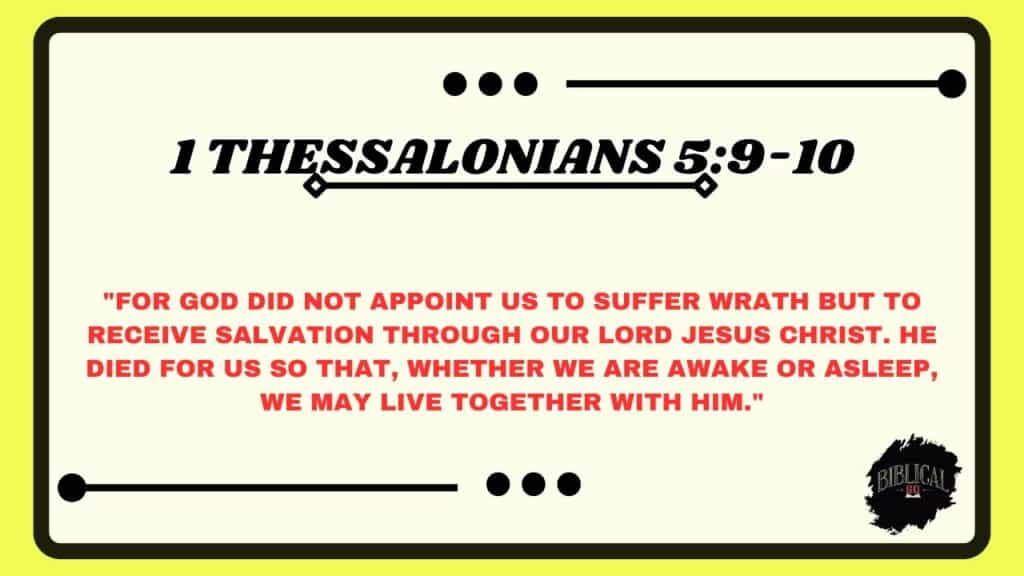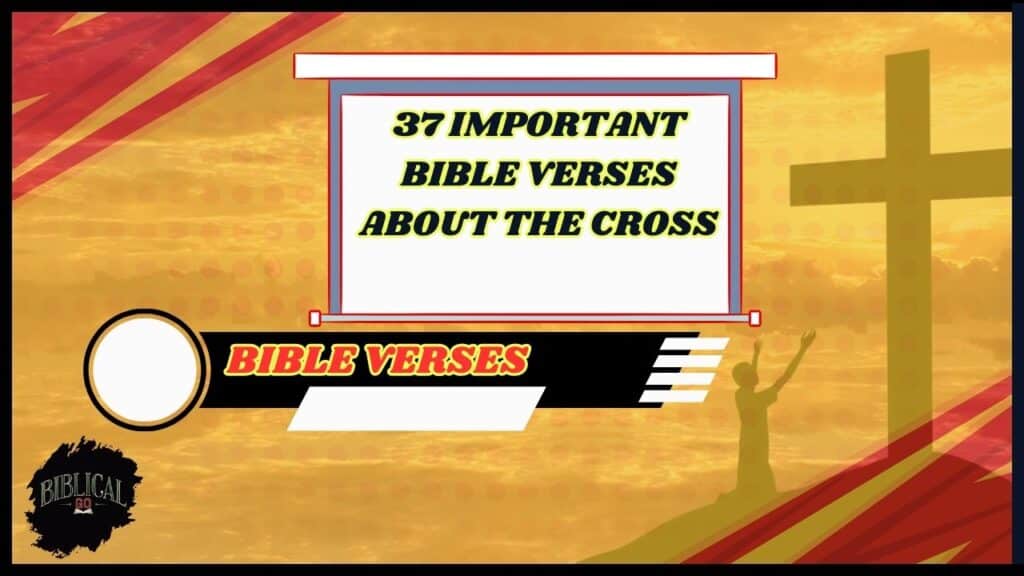Important Bible Verses About The Cross: The cross stands as the central symbol of Christianity, representing both the ultimate sacrifice of Jesus Christ and the foundation of our faith. More than a religious emblem, the cross embodies God’s unwavering love, remarkable grace, and the promise of salvation.
Throughout Scripture, references to the cross and Christ’s crucifixion reveal profound spiritual truths that continue to transform hearts and lives today. These passages remind us that at the cross, justice and mercy met, sin was conquered, and the path to eternal life was opened for all who believe.
Whether you’re seeking to deepen your understanding of Christ’s sacrifice, looking for encouragement during difficult times, or wanting to share the message of the cross with others, these 37 verses provide a comprehensive picture of what the cross means to believers.
Also Read: 36 Bible Verses About Missing Someone (Explained)
The Cross as the Ultimate Sacrifice
1. John 3:16
“For God so loved the world that he gave his one and only Son, that whoever believes in him shall not perish but have eternal life.”
This verse captures the heart of God’s motivation behind the cross. God’s love prompted Him to give His Son as a sacrifice, demonstrating that the cross was born from divine love, not obligation. This truth invites us to respond to such extraordinary love by placing our trust in Christ and sharing this message of sacrificial love with others.
2. Romans 5:8
“But God demonstrates his own love for us in this: While we were still sinners, Christ died for us.”
Paul emphasizes the timing of Christ’s sacrifice it came while we were still in rebellion. The cross reveals God’s proactive love that didn’t wait for us to become worthy. Consider how this truth might change your perspective when you feel undeserving of God’s love; the cross stands as evidence that His love precedes your worthiness.
3. Isaiah 53:5
“But he was pierced for our transgressions, he was crushed for our iniquities; the punishment that brought us peace was on him, and by his wounds we are healed.”

This prophetic verse vividly describes the suffering Christ would endure on the cross centuries before it happened. Every wound Jesus suffered served a redemptive purpose, bringing us spiritual healing and peace with God. When facing physical or emotional pain, remember that Christ’s suffering on the cross gives meaning to yours and offers the ultimate healing.
4. 1 Peter 2:24
“He himself bore our sins in his body on the cross, so that we might die to sins and live for righteousness; by his wounds you have been healed.”
Peter explains the substitutionary nature of Christ’s death He physically carried our sins in His body. This transfer of guilt enables believers to experience freedom from sin’s power and live righteous lives. Ask yourself daily: “Am I living in the freedom Christ purchased for me on the cross?”
5. Hebrews 12:2
“Fixing our eyes on Jesus, the pioneer and perfecter of faith. For the joy set before him he endured the cross, scorning its shame, and sat down at the right hand of the throne of God.”
This verse reveals Christ’s perspective on the cross He endured its suffering because of the joy awaiting beyond it. Despite the shame associated with crucifixion, Jesus willingly embraced it for our salvation. When facing difficulties in your faith journey, adopt Christ’s perspective by looking beyond present struggles to the eternal joy ahead.
6. Galatians 6:14
“May I never boast except in the cross of our Lord Jesus Christ, through which the world has been crucified to me, and I to the world.”
Paul declares that the cross is his only source of boasting, recognizing it as the dividing line between worldly values and kingdom priorities. Through the cross, believers experience a mutual crucifixion with the world’s systems and values. Examine what you take pride in most, and realign your perspective to glory primarily in what Christ accomplished at the cross.
7. Philippians 2:8
“And being found in appearance as a man, he humbled himself by becoming obedient to death even death on a cross!”
This verse highlights Christ’s extraordinary humility and obedience in accepting crucifixion. The phrase “even death on a cross” emphasizes how extreme this form of execution was reserved for the worst criminals. Let Christ’s humility at the cross inspire you to embrace humble obedience in your own life, even when it’s costly.
Also Read: 36 Bible Verses About Other Religions
The Cross as Victory Over Sin and Death
8. Colossians 2:14-15
“Having canceled the charge of our legal indebtedness, which stood against us and condemned us; he has taken it away, nailing it to the cross. And having disarmed the powers and authorities, he made a public spectacle of them, triumphing over them by the cross.”
Paul uses powerful imagery of debt cancellation and military triumph to describe what happened at the cross. Our spiritual debt was nailed there with Christ, and evil powers were publicly defeated. Remember that when you feel spiritually oppressed, the victory Christ won at the cross means you fight from a position of triumph, not for it.
9. 1 Corinthians 1:18
“For the message of the cross is foolishness to those who are perishing, but to us who are being saved it is the power of God.”
Paul acknowledges the paradox that what appears as weakness to unbelievers is actually God’s greatest demonstration of power. The cross divides humanity into two groups based on their response to its message. Share the message of the cross confidently, knowing that while some may reject it as foolish, others will recognize its life-transforming power.
10. Romans 6:6
“For we know that our old self was crucified with him so that the body ruled by sin might be rendered powerless, that we should no longer be slaves to sin.”
This verse reveals our spiritual identification with Christ’s death. When Jesus died, our old sin-dominated self died with Him, breaking sin’s mastery over us. When temptation comes, remind yourself, “I don’t have to obey sin because my old self is dead with Christ on the cross.”
11. Ephesians 2:16
“And in one body to reconcile both of them to God through the cross, by which he put to death their hostility.”

Paul explains how the cross creates unity by reconciling both Jews and Gentiles to God and to each other. The cross destroys the barriers that divide humanity. Consider how Christ’s work on the cross should influence your relationships with believers who come from different backgrounds or traditions than your own.
12. 1 Corinthians 15:3-4
“For what I received I passed on to you as of first importance: that Christ died for our sins according to the Scriptures, that he was buried, that he was raised on the third day according to the Scriptures.”
Paul identifies the message of the cross and resurrection as the essential core of the Christian faith. This passage reminds us that Christ’s death fulfilled scriptural prophecy, confirming God’s sovereign plan. Center your faith on these foundational truths, ensuring that the cross remains “of first importance” in your understanding of Christianity.
13. Revelation 5:9
“And they sang a new song, saying: ‘You are worthy to take the scroll and to open its seals, because you were slain, and with your blood you purchased for God persons from every tribe and language and people and nation.'”
This heavenly vision reveals that the cross’s effects extend to every people group on earth. Christ’s blood purchased a diverse, multicultural family of believers. Support cross-cultural ministry efforts, recognizing that the gospel transcends all cultural and ethnic boundaries because of what Christ accomplished on the cross.
14. Acts 2:23-24
“This man was handed over to you by God’s deliberate plan and foreknowledge; and you, with the help of wicked men, put him to death by nailing him to the cross. But God raised him from the dead, freeing him from the agony of death, because it was impossible for death to keep its hold on him.”
Peter proclaims that the crucifixion was not an accident but part of God’s sovereign plan. Even human wickedness served God’s redemptive purposes. Trust God’s sovereign control over your circumstances, knowing that if He could use the greatest injustice the cross for good, He can redeem any situation in your life.
Also Read: 33 Bible Verses About Being Lukewarm
The Cross as the Path to Reconciliation
15. 2 Corinthians 5:19
“That God was reconciling the world to himself in Christ, not counting people’s sins against them. And he has committed to us the message of reconciliation.”
Paul explains that through the cross, God was actively working to restore broken relationship with humanity. The cross enables God to forgive sin without compromising justice. Embrace your role as an ambassador of reconciliation, sharing how Christ’s work on the cross makes peace with God possible.
16. Ephesians 2:13
“But now in Christ Jesus you who once were far away have been brought near by the blood of Christ.”
Paul addresses Gentile believers who were previously excluded from God’s covenant promises. The blood Jesus shed on the cross eliminated the distance between them and God. Remember that no matter how far from God you once were, the cross has made a way for intimate relationship with Him.
17. Colossians 1:19-20
“For God was pleased to have all his fullness dwell in him, and through him to reconcile to himself all things, whether things on earth or things in heaven, by making peace through his blood, shed on the cross.”
This passage reveals the cosmic scope of the cross’s impact. Christ’s blood creates peace between God and all creation, addressing the universal effects of sin. See the environmental and social issues around you through the lens of Christ’s reconciling work, which will ultimately restore all creation.
18. Romans 8:3-4
“For what the law was powerless to do because it was weakened by the flesh, God did by sending his own Son in the likeness of sinful flesh to be a sin offering. And so he condemned sin in the flesh, in order that the righteous requirement of the law might be fully met in us, who do not live according to the flesh but according to the Spirit.”
Paul contrasts the inability of the law to save with the effectiveness of Christ’s sacrifice. The cross accomplished what religious observance never could the condemnation of sin itself. Embrace the freedom of living by the Spirit rather than striving to earn God’s favor through rule-keeping, knowing the cross has satisfied God’s righteous requirements.
19. 1 John 2:2
“He is the atoning sacrifice for our sins, and not only for ours but also for the sins of the whole world.”

John describes Christ’s death as the propitiation that satisfies God’s righteous anger toward sin. The scope of this atonement extends to the entire world. Share the gospel confidently with anyone, knowing there is no sin beyond the reach of Christ’s atoning work on the cross.
20. Romans 3:25-26
“God presented Christ as a sacrifice of atonement, through the shedding of his blood to be received by faith. He did this to demonstrate his righteousness, because in his forbearance he had left the sins committed beforehand unpunished he did it to demonstrate his righteousness at the present time, so as to be just and the one who justifies those who have faith in Jesus.”
Paul explains how the cross resolves the tension between God’s justice and mercy. Through Christ’s sacrifice, God can remain just while also justifying sinners. Appreciate the perfect balance of attributes displayed at the cross God compromised neither His justice nor His love.
The Cross and the Christian Life
21. Galatians 2:20
“I have been crucified with Christ and I no longer live, but Christ lives in me. The life I now live in the body, I live by faith in the Son of God, who loved me and gave himself for me.”
Paul describes the transformed identity of the believer who has died with Christ. Our lives are now defined by Christ living through us rather than by our independent efforts. Start each day with this truth: “It’s no longer I who live, but Christ who lives in me,” allowing His life to express itself through yours.
22. Matthew 16:24-25
“Then Jesus said to his disciples, ‘Whoever wants to be my disciple must deny themselves and take up their cross and follow me. For whoever wants to save their life will lose it, but whoever loses their life for me will find it.'”
Jesus teaches that following Him requires a willingness to embrace suffering as He did. Taking up our cross means dying to self-interest for Christ’s sake. Identify areas where you’re hesitant to deny yourself for Christ, and pray for courage to follow Him even when it’s costly.
23. Luke 14:27
“And whoever does not carry their cross and follow me cannot be my disciple.”
Jesus establishes cross-bearing as non-negotiable for discipleship. This involves accepting the suffering and sacrifice that comes with following Christ. Evaluate whether you’ve been attempting to follow Jesus without embracing the self-denial He requires, and recommit to true discipleship.
24. 1 Corinthians 1:23-24
“But we preach Christ crucified: a stumbling block to Jews and foolishness to Gentiles, but to those whom God has called, both Jews and Greeks, Christ the power of God and the wisdom of God.”
Paul acknowledges that the message of the crucified Messiah offends religious sensibilities and defies worldly wisdom. Yet to believers, the cross reveals God’s true power and wisdom. Don’t be discouraged when others reject the gospel; their reaction often confirms Paul’s observation about how the cross appears to different audiences.
25. Galatians 5:24
“Those who belong to Christ Jesus have crucified the flesh with its passions and desires.”
Paul describes how believers actively participate in putting sinful desires to death. Union with Christ empowers believers to choose against sinful impulses. When tempted, visualize yourself nailing that specific desire to the cross, acknowledging it as part of your old nature that was crucified with Christ.
26. Mark 10:45
“For even the Son of Man did not come to be served, but to serve, and to give his life as a ransom for many.”
Jesus reveals His self-understanding as the Suffering Servant who would pay the ransom price for humanity. The cross represents the ultimate service to others. Follow Christ’s example by seeking opportunities to serve others sacrificially, remembering that such service reflects the heart of Jesus displayed on the cross.
27. Philippians 3:18-19
“For, as I have often told you before and now tell you again even with tears, many live as enemies of the cross of Christ. Their destiny is destruction, their god is their stomach, and their glory is in their shame. Their mind is set on earthly things.”

Paul weeps over those who claim Christ but whose lifestyle contradicts the self-denial of the cross. Self-indulgence and worldly focus make one an enemy of what the cross represents. Regularly examine your priorities and pleasures to ensure they align with the self-giving love demonstrated at the cross.
28. Matthew 27:40-42
“And saying, ‘You who are going to destroy the temple and build it in three days, save yourself! Come down from the cross, if you are the Son of God!’ In the same way the chief priests, the teachers of the law and the elders mocked him. ‘He saved others,’ they said, ‘but he can’t save himself! He’s the king of Israel! Let him come down now from the cross, and we will believe in him.'”
The mockers at the cross unknowingly spoke a profound truth Jesus could not save others and save Himself simultaneously. His refusal to come down from the cross was His greatest strength, not weakness. When tempted to take the easy path, remember that Jesus could have escaped suffering but chose to endure it for your salvation.
29. Romans 14:15
“If your brother or sister is distressed because of what you eat, you are no longer acting in love. Do not by your eating destroy someone for whom Christ died.”
Paul applies Christ’s sacrifice to how believers should treat each other. Since Christ valued others enough to die for them on the cross, we should value them enough to limit our freedom for their sake. Consider how your actions affect other believers, asking, “Am I treating them as people worth Christ’s sacrifice on the cross?”
30. 1 Corinthians 2:2
“For I resolved to know nothing while I was with you except Jesus Christ and him crucified.”
Paul identifies the cross as the central focus of his ministry. Despite his extensive knowledge, he prioritized the message of the crucified Christ above all else. Evaluate whether the cross occupies the same central place in your understanding and communication of the gospel.
Also Read: 37 Bible Verses About Dreams Coming True
The Cross and Our Future Hope
31. Hebrews 9:28
“So Christ was sacrificed once to take away the sins of many; and he will appear a second time, not to bear sin, but to bring salvation to those who are waiting for him.”
The writer contrasts Christ’s first appearance (to die on the cross) with His second coming (to complete salvation). The cross initiated our salvation, which will be fully realized at His return. Live with confident expectation that the work begun at the cross will be completed when Christ returns.
32. Colossians 2:12
“Having been buried with him in baptism, in which you were also raised with him through your faith in the working of God, who raised him from the dead.”
Paul connects baptism with our identification with Christ’s death and resurrection. Baptism symbolizes our participation in the full redemptive narrative represented by the cross. If you’ve been baptized, regularly reflect on its meaning as a visible representation of your union with Christ in His death and resurrection.
33. Revelation 7:14
“These are they who have come out of the great tribulation; they have washed their robes and made them white in the blood of the Lamb.”
John’s vision reveals the eternal significance of Christ’s blood shed on the cross. Even in heavenly scenes, the cross remains central to the identity of the redeemed. During difficult trials, remember that countless saints before you have emerged victorious through the cleansing power of Christ’s blood.
34. Hebrews 13:12
“And so Jesus also suffered outside the city gate to make the people holy through his own blood.”
The writer connects Jesus’ physical location at crucifixion with its spiritual significance. Just as He suffered outside the city in disgrace, He sanctifies believers who are willing to join Him “outside the camp.” Embrace the possibility of social rejection for your faith, knowing you share in Christ’s experience and purposes.
35. Ephesians 1:7
“In him we have redemption through his blood, the forgiveness of sins, in accordance with the riches of God’s grace.”
Paul emphasizes that our forgiveness comes through Christ’s blood shed on the cross. This redemption flows from God’s abundant grace rather than our merit. Live with the freedom of knowing your sins are completely forgiven through the cross, allowing God’s grace to transform how you see yourself and others.
36. 1 Thessalonians 5:9-10
“For God did not appoint us to suffer wrath but to receive salvation through our Lord Jesus Christ. He died for us so that, whether we are awake or asleep, we may live together with him.”

Paul explains that through Christ’s death on the cross, believers are shielded from divine judgment. The ultimate purpose of the cross is relationship “that we may live together with him.” Find comfort in knowing that whether in life or death, the cross guarantees your eternal connection with Christ.
37. 2 Corinthians 13:4
“For to be sure, he was crucified in weakness, yet he lives by God’s power. Likewise, we are weak in him, yet by God’s power we will live with him in our dealing with you.”
Paul draws a parallel between Christ’s experience and the Christian life. What appeared as weakness at the cross was actually the pathway to resurrection power. Embrace your weaknesses as opportunities for God’s power to work, following the pattern established at the cross.
Conclusion: Important Bible Verses About The Cross
The cross of Christ stands as the pivotal moment in human history the place where God’s justice and mercy met perfectly, where sin was defeated, and where salvation was secured for all who believe. These 37 verses reveal the profound depths of what happened when Jesus willingly gave His life as the ultimate sacrifice.
From the cross flows forgiveness, reconciliation, freedom from sin’s power, and the promise of eternal life. It transforms not only our standing before God but also how we live each day calling us to self-denial, sacrificial love, and unwavering hope.
As you reflect on these passages, remember that the cross is not merely a historical event or religious symbol but the very foundation of our faith and the pattern for our lives. Its message continues to offer healing, restoration, and purpose to every person who embraces Christ’s sacrifice.
Bonus: Practical Ways to Use These Cross-Centered Verses
- Personal Devotions: Select one verse about the cross each day for a month and spend time meditating on its meaning, writing your reflections in a journal.
- Scripture Memorization: Choose 3-5 key verses about the cross to commit to memory, reviewing them regularly to keep the gospel central in your thinking.
- Bible Study: Lead or participate in a small group study focusing on the theme of the cross, using these verses as your foundation.
- Prayer Focus: Incorporate these verses into your prayer life, thanking God specifically for different aspects of Christ’s work on the cross.
- Easter Reflections: Create a Holy Week reading plan using these verses to deepen your appreciation of Christ’s sacrifice in the days leading up to Easter.
- Sharing Your Faith: Familiarize yourself with several key verses about the cross to better explain the gospel when opportunities arise.
- Encouragement Cards: Write notes to friends going through difficult times, including an appropriate verse about the cross and how it relates to their situation.
- Home Decor: Display meaningful verses about the cross in your home as beautiful reminders of Christ’s sacrifice.
- Digital Witness: Share these verses on social media platforms during appropriate seasons (like Easter) or when current events provide natural opportunities.
- Congregational Worship: Suggest these verses to your worship leader or pastor for incorporation into services, especially around communion times.
Frequently Asked Questions
What is the significance of the cross in Christianity?
The cross represents the central event of Christianity Jesus Christ’s sacrificial death to atone for humanity’s sin. It symbolizes God’s love, mercy, justice, forgiveness, and the way of salvation. Unlike other religious symbols, the cross reminds believers of both the cost of sin and the triumph over it, serving as the meeting place between God’s perfect justice and His perfect love.
Why does Paul say he boasts in the cross?
In Galatians 6:14, Paul boasts in the cross because it represents Christ’s work rather than human achievement. By glorying in the cross, Paul acknowledges that salvation comes entirely through Christ’s sacrifice, not through personal merit or religious observance. The cross humbles human pride while exalting God’s grace, giving believers the only legitimate reason for boasting what God has done for them rather than what they have done for God.
How should the cross influence my daily life?
The cross should transform every aspect of a believer’s life by shaping their identity (as one crucified with Christ), values (prioritizing self-giving love), response to suffering (finding meaning in it), treatment of others (sacrificial service), and approach to sin (considering it defeated). Jesus taught that following Him means “taking up your cross daily,” suggesting that cross-shaped living involves ongoing self-denial for the sake of Christ and others.
Is the cross just about personal salvation?
While personal salvation is a crucial aspect of the cross, Scripture reveals its much broader significance. The cross reconciles humans to God, creates peace between divided people groups, defeats cosmic evil powers, and begins the restoration of all creation. The cross addresses not just individual sin but also systemic evil, broken relationships, and the fractured cosmos ultimately, it’s God’s solution to everything sin has damaged.
How can I better understand the cross’s meaning?
Deepen your understanding of the cross by: 1) regularly studying the biblical passages that explain it from different angles, 2) participating in communion with thoughtful reflection, 3) reading theological works that explore its significance, 4) discussing its meaning with other believers, and 5) allowing the Holy Spirit to illuminate its personal application in your life. The cross’s meaning is inexhaustible even eternity won’t be long enough to fully comprehend its wonder.
Read more knowledgeable blogs on Biblical Go

Piper McMillan is a devoted writer and Bible enthusiast, offering insightful guides on Bible verses. Her blog provides practical interpretations and reflections, helping readers deepen their faith and understanding of Scripture through accessible and inspiring content.



